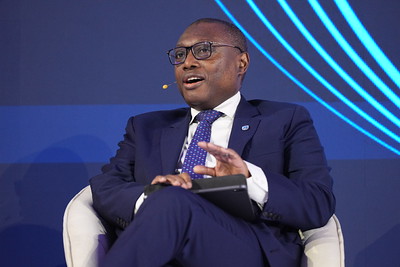Cape Town played host to Africa Unlocked 2025, Standard Bank’s business and economic summit, which brought together policymakers, entrepreneurs, investors, and development specialists to confront some of the continent’s most urgent challenges and opportunities.

Held over two days, the summit focused on unlocking intra-African trade, infrastructure development, energy access, and the free movement of goods and capital across the continent. As global trade tensions escalate and many African countries, including South Africa, face reciprocal import tariffs, participants called for greater economic integration and African-led investment strategies.
Among the key issues raised were Africa’s fragmented regulatory frameworks, slow movement of goods across borders, and limited access to capital for local businesses. Speakers noted that African pension funds and domestic investors continue to shy away from investing in local economies, leading to increased reliance on capital from the global north — particularly Western, and increasingly, Eastern markets.
Sim Tshabalala, Chief Executive of Standard Bank Group, said, “Africa Unlocked is not just about shaping conversations, it is about delivering tangible progress by Africans for Africa.”
While the event took place in South Africa, several themes resonated strongly with Tanzania’s own economic context. Issues such as underinvestment in transport and energy infrastructure, challenges in port efficiency, and limited intra-African exports mirror discussions happening at home.
One speaker highlighted the contradiction in Africa’s resource-rich status and the limited electricity reaching communities. Ethiopia’s hydropower investments were cited as an example — large-scale energy generation that still fails to serve domestic needs. Tanzania, with growing rural electrification initiatives, faces similar concerns around energy equity and infrastructure access.
Agriculture was another major focus, especially as tariffs threaten African exports. Several panelists questioned why African countries continue to rely on distant export markets, despite having vast untapped opportunities within the continent. Tanzania’s own agricultural value chains, from rice to horticulture, were referenced in follow-up discussions about boosting local and regional trade.
Standard Bank’s CEO for Business and Commercial Banking, William (Bill) Blackie, emphasized the importance of supporting family-owned businesses across the continent, the same businesses driving agriculture, education, health, and logistics in Tanzania.
“Unlocking Africa’s potential is not a slogan. It is an action. This conference brings Africa’s entrepreneurs into the same room to find shared solutions. It is about collaboration, not competition,” he said.
The Africa Unlocked forum also addressed the urgent need to harmonise visa and immigration policies, enable cross-border mobility, and create trade corridors that accelerate the movement of goods and professionals across African economies.
As Africa looks inward to build resilience, Tanzania remains well-positioned to play a critical role through its strategic location, active participation in the African Continental Free Trade Area (AfCFTA), and growing regional infrastructure investments. What remains is the political will and private sector collaboration to turn ideas into sustained action.
The conference concluded with a call for Africans to redefine their narrative, trust in their capacity, and take the lead in shaping their economic future.


